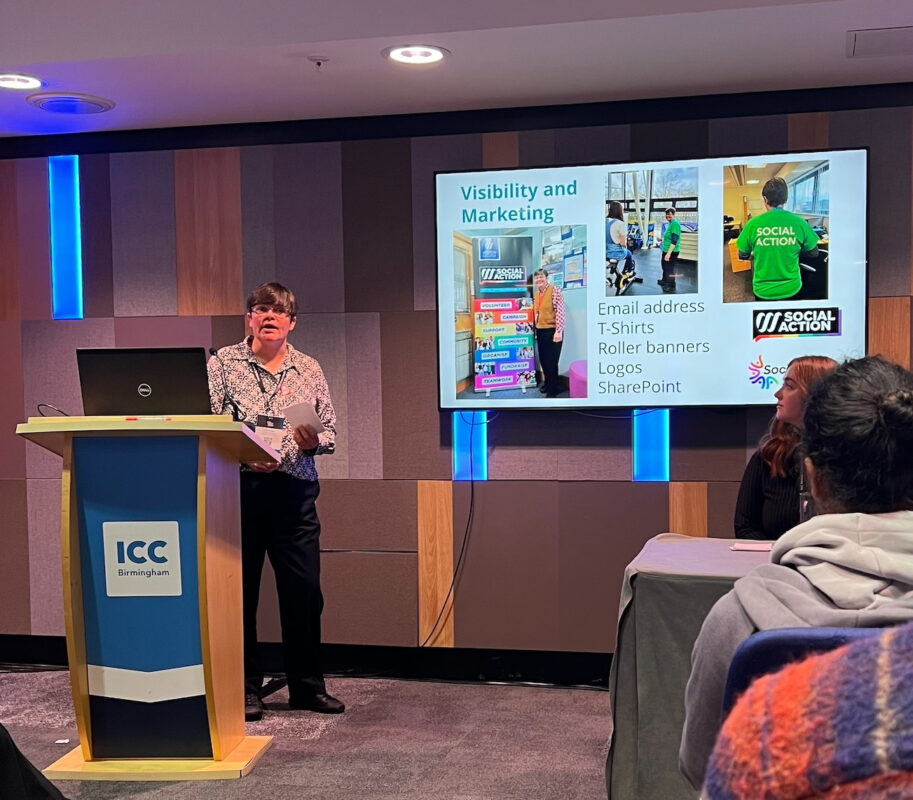New study reveals benefits of hybrid working for disabled workers but some fear choice between health and career progression

Eighty-five per cent of disabled workers in the UK say they are more productive working from home, new research by the Work Foundation reveals.
In a survey of hundreds of disabled workers across the UK, 80% agree remote working would either be essential or very important when looking for a new job, and 66% ideally want to work remotely 80 – 100% of the time. Seventy per cent say that not being allowed to work remotely would negatively impact their health, but most fear remote working will damage their career progression.
While many are being allowed to continue working from home, some feel it has been arranged reluctantly. Seventy per cent of disabled workers with two or more impairments also fear that working from home will mean they are overlooked for training or ‘stretch’ opportunities, suggesting that pre-pandemic perceptions amongst managers and employers could remain.
The new study, published today by the Work Foundation think-tank at Lancaster University, explores disabled workers’ experiences of remote and hybrid working, before and during the pandemic. Commissioned by City Bridge Trust, the City of London Corporation’s charity funder, the study involves a survey of 406 disabled workers living and working across the UK earlier this year, along with 20 in-depth interviews and two roundtable events.
With only 52.7% of disabled people employed in the UK compared to 81% of non-disabled people, and the disability pay gap increasing from 11.7% in 2014 to 13.8% in 2021; the study emphasises the significant barriers and disadvantages disabled people continue to face in the labour market.
One in five of the UK working-age population now identify as disabled, so the Work Foundation say it’s imperative that colleagues, managers, employers and Government do more to support disabled people to enter and stay in the workplace.
“Disabled people have been worst affected by the economic fallout of the pandemic, experiencing higher rates of unemployment and redundancies than non-disabled people,” Ben Harrison, Director of the Work Foundation explains.
“Many employers refused to offer remote or hybrid working options before Covid-19 hit – even as reasonable adjustments – which probably goes some way to explain the shocking disability employment gap we face in the UK.
“Despite seeing an overall rise in remote and flexible working since, it’s particularly concerning to see that ‘pre-pandemic’ perceptions are still affecting the experience of work for disabled people, with many fearing their career progression and access to training and development will be limited if they continue working from home.
“The actions and language of politicians, policymakers and employers matter here. Implicitly or explicitly asserting flexible working leads to lower productivity or somehow undermines organisations isn’t only inaccurate but could have very damaging consequences for those managing health issues and disabilities.
“As vacancies rise to record levels and employers struggle to recruit into roles, a vast pool of talent is being overlooked amongst disabled people currently out of work. Given the right conditions and flexibility to thrive, disabled people could help alleviate the shortages we see across the country. But if flexibility and autonomy isn’t adopted into workplace culture, there is a real danger we could reverse any progress that has been made.”
The majority of respondents felt the support at work had not got worse during the pandemic, with respondents in some sectors noticing a marked improvement while working from home. However, of all survey respondents who requested additional support or new adjustments while working remotely, almost 1 in 5 (19%) had their request refused. Many interviewees had to use their own money to purchase equipment they needed themselves.
Gaining more autonomy and control over working environments was highlighted as one of the main benefits for disabled workers, with many reporting significant improvements to their health, quality of work and overall job satisfaction as a result. For example, autistic workers stressed the benefits of being able to control lighting and noise levels at home, which is more challenging to do in an open-plan office.
Those with multiple conditions or those who were affected ‘a lot’ by their impairments, were more than 3 times likely to say that not being able to work remotely would impact their ability to do all of their job.
Dr Paula Holland from Lancaster University, a co-researcher on the study, said:
“Our findings bring into sharp focus the benefits that having more autonomy over a work environment has brought so many disabled people in the UK. And, while more than 65% of respondents want to work remotely for the majority of the time, there are around 10% who don’t want to predominantly work from home – what suits one, won’t suit all. What is abundantly clear, however, is that when disabled workers are able to control their working environment, they manage their conditions more easily – they feel healthier and more productive.”
City Bridge Trust Grants Committee Chairman Paul Martinelli said:
“The pandemic transformed our lives in many ways, not least in how and where we work. This research demonstrates that flexible working, which many companies and organisations have now adopted, has particularly far-reaching benefits for disabled employees.
“Not only does it empower disabled people to better manage their health and wellbeing, it increases the likelihood of their securing work, staying long-term and progressing in their career, to the benefit of employee and employer alike.
“This report contains some clear recommendations as to how policymakers, employers and colleagues can work to provide the flexibility and support disabled people need, and in the process address the shocking pay and employment gaps which still exist.
“It’s vital that the voice of disabled people is heard when decisions which affect their working arrangements are made, and that experience gained during the pandemic is put to use to ensure that, even if working remotely, disabled people are treated inclusively, as valued members of the team.”
‘The Changing Workplace: Enabling disability-inclusive hybrid working‘ report outlines a series of recommendations:
For policymakers
- To narrow the reasons for employers to refuse flexible working requests to make them more accessible and require larger organisations to publish their flexible working policies externally and monitor take up
- Increase resourcing for the Equalities and Human Rights Commission and widen its remit to allow it to constructively challenge employers who do not provide adjustments for disabled workers
- The EHRC should open an enquiry into reasonable adjustments for disabled workers in the context of remote and hybrid working, to understand the challenges that organisations face in assessing reasonable adjustment requests, and use findings to develop comprehensive guidance for employers
- Reform Access to Work, providing better funding and resourcing so that it works effectively for individuals and employers, and breaks down barriers to accessing occupational health expertise
For employers
- Invest in training and supporting line managers – managers embody company values and culture, so employers must make sure they are equipped to run hybrid teams that are productive and inclusive
- Consultation – The importance of autonomy is clear, so it is vital that decisions about hybrid working practices are not made via a top-down approach. Consultation should be a continuous exercise to better adjust conditions and help workers be more productive.
- Explore wider forms of flexibility. Employers need to consider that for some, remote work can cause isolation or anxiety. They should support the full spectrum of flexible work, including job-sharing, flexitime and compressed hours.
- Workplace adjustment passports for all – Adjustment passports are a valuable tool to record and communicate needs and preferences about how and where we work. Using these for all workers has been widely welcomed and seen as a way of destigmatising the adjustment request process.
To help create a truly disability-inclusive culture, colleagues are encouraged to:
- Educate themselves – Learning, and in some cases, unlearning, is an essential first step in becoming an ally.
- Check in with colleagues rather than assume what they need
- Listen, support, self-reflect and change
The report is available here and is published on the Work Foundation’s website: www.theworkfoundation.com.











Responses